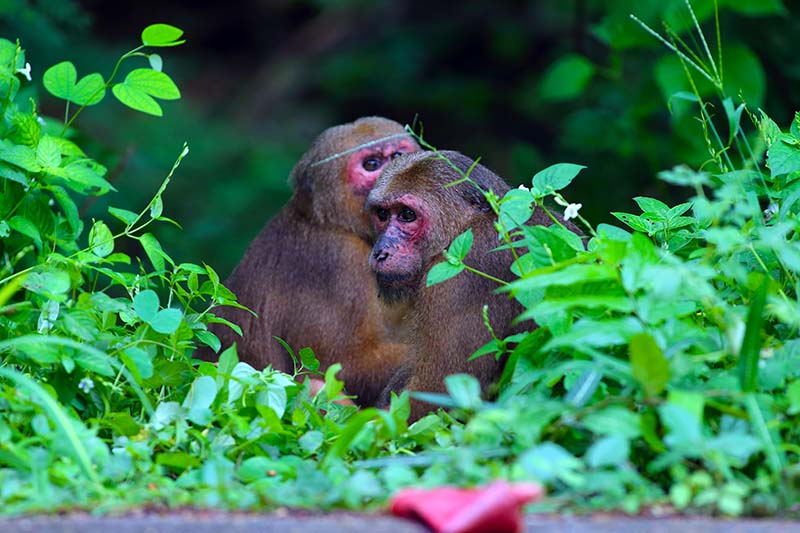2.0-minute read
We don’t typically associate spontaneous acts of altruism with members of the animal kingdom. Taking action that relieves suffering or improves the life of another without receiving any benefit has long been thought to be a uniquely human trait. As it turns out, chimpanzees also get by with a little assistance from their selfless friends. Rather than operating on the basis of “you scratch my back, I’ll share my banana,” chimps are willing and able to go out of their way to lend a helping hand without receiving any immediate or long-term primate perks in return.
Although many social behaviors of chimps like grooming, food sharing, and consoling are driven by expectations of reciprocity from relatives or members of their troop, researchers at the Max Planck Institute discovered that chimpanzees also make an effort to help out, without training or reward, even if the ape in need is a stranger. In the German study, 12 out of 18 chimpanzees born in the wild watching an unknown chimp struggle to open a chained door leading to food would move from their resting place to unhook the chain and give the hungry chimp access without begging or bullying for a share of the treat.
So, what motivates helping without the possibility of payback? And is there a relationship between the altruistic behaviors in charitable chimps and helpful humans? Researchers at the University of Pennsylvania studying how humans process the consequences of our actions believe that we may receive an internal reward for being kind or avoiding the guilt or shame of not helping. However, people who are motivated by positive altruism, which is solely for the benefit of others, tend to have greater innate empathy that provokes an emotional response when faced with the suffering or need of another person. They offer assistance even if it requires self-sacrifice. Those lower in empathy were more likely to help only when there was no other option. Apparently, the happy-to-help crew are also happier for helping, benefiting from enhanced mood and life meaning and a greater sense of self-efficacy and competence with the added bonus of improving society and humanity as a whole. Altruism – good, and good for you!
While humans have the capacity to empathize and cultivate cultural norms that promote altruism, we can’t be certain why chimpanzees make an effort to do the right thing with no benefit to themselves. Perhaps they aim to avoid shunning from chimp society, or maybe they are also able to identify with the emotional state of another living being in distress and then feel compelled to act. For now, the answer seems to be that they help simply because they can.




















































